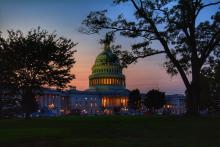Federal Government Devotes Billions to Internet Access: A Community Guide to Current Broadband Funding
In the American Rescue Plan Act, Congress and the Biden Administration included a multi-billion dollar appropriation to help expand high-speed Internet access. This guide offers an overview of the different funding opportunities for communities interested in expanding broadband services. As application deadlines vary in some cases and other money must be spent within certain time frames, it is critical for states, municipalities, community organizations, and Tribal governments to start planning initiatives now.
It’s also worth emphasizing that 18 states still put localities at a disadvantage when it comes to spending anticipated funding effectively by preserving laws that interfere with community investment in broadband infrastructure. Much of this money could also be funneled for other purposes due to a lack of good plans and community engagement.
The amount of funding flowing into communities is unprecedented. Localities should prepare to spend funds on needed, futureproof infrastructure. This is an historic, once-in-a-lifetime investment in Internet infrastructure and communities who develop a clear, actionable plan and are as ready as possible once the money starts flowing will prosper.
Directory
If you’re a homeowner looking for assistance paying your Internet bill…look to the Emergency Broadband Benefit Program or Homeowner’s Assistance Fund.
If you’re an HBCU or Minority-serving institution looking to expand Internet access to your students, or if you’re a minority business enterprise or nonprofit organization in the surrounding community...look to the Connecting Minority Communities Pilot Program.
if you’re a Tribal government, Tribal organization, or Tribal college or university, including native Hawaiian organizations, education programs and native corporations…look to the Tribal Broadband Connectivity Program.
If you’re a city interested in partaking in a public-private partnership…look to the Promote Broadband Expansion Grant Program.
If you’re a school or library whose main concern is obtaining remote Internet access devices...look to the Emergency Connectivity Fund.
Federal Aid Directly To States, Counties, Localities and Territories



